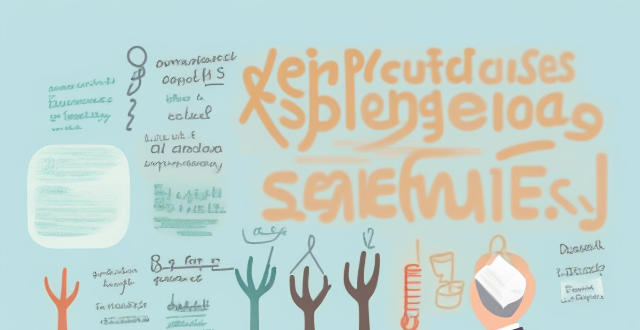The text discusses the importance of supporting students with English as a second language (ESL) in understanding and applying academic integrity standards. It outlines four key strategies for doing so: providing clear explanations, accessible resources, open communication, and extra support. Clear explanations should cover what constitutes academic dishonesty, the consequences of violations, and how to avoid dishonesty. Accessible resources such as glossaries, guides, and videos can help ESL students understand these concepts better. Encouraging open communication between students and instructors can address concerns and questions about academic integrity. Providing extra support through tutoring services, workshops, and peer mentoring programs can further assist ESL students in adhering to academic integrity standards.

Supporting Students with English as a Second Language in Understanding and Applying Academic Integrity Standards
Academic integrity is a fundamental principle that all students, regardless of their language proficiency, must adhere to. However, for students with English as a second language (ESL), understanding and applying academic integrity standards can be challenging. Here are some ways to support ESL students in this regard:
1. Clear Explanation of Academic Integrity Standards
It is essential to provide a clear explanation of academic integrity standards to ESL students. This explanation should be given in simple and straightforward language that is easy to understand. The explanation should cover the following areas:
- What constitutes academic dishonesty, such as cheating, plagiarism, and fabrication
- The consequences of violating academic integrity standards
- How to avoid academic dishonesty by properly citing sources, paraphrasing, and summarizing information
2. Providing Accessible Resources
Providing accessible resources can help ESL students understand and apply academic integrity standards. These resources should include:
- Glossaries: Glossaries of key terms related to academic integrity can help ESL students understand these concepts better.
- Guides and Handouts: Guides and handouts that explain academic integrity standards in simple language can be helpful for ESL students.
- Videos and Webinars: Videos and webinars that explain academic integrity standards can be particularly useful for visual learners.
3. Encouraging Open Communication
Encouraging open communication between ESL students and their instructors or academic advisors can help address any concerns or questions they may have about academic integrity standards. This communication should be done in a non-judgmental and supportive manner to ensure that ESL students feel comfortable asking questions and seeking clarification.
4. Providing Extra Support
Providing extra support to ESL students can help them better understand and apply academic integrity standards. This support can include:
- Tutoring Services: Tutoring services that focus on academic writing skills can help ESL students improve their writing abilities and avoid academic dishonesty.
- Workshops and Seminars: Workshops and seminars that focus on academic integrity can provide ESL students with practical tips and strategies for avoiding academic dishonesty.
- Peer Mentoring Programs: Peer mentoring programs that pair ESL students with native English speakers can provide them with additional support and guidance in understanding and applying academic integrity standards.
In conclusion, supporting ESL students in understanding and applying academic integrity standards requires clear explanations, accessible resources, open communication, and extra support. By implementing these strategies, we can help ensure that all students, regardless of their language proficiency, adhere to academic integrity standards and achieve academic success.